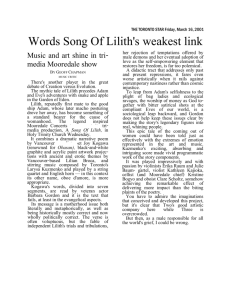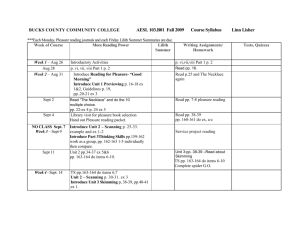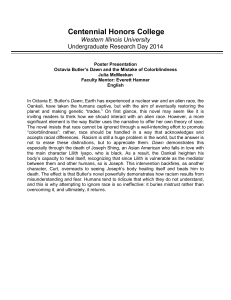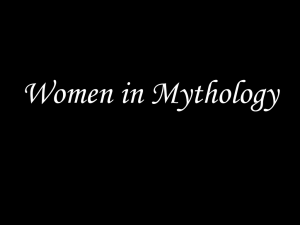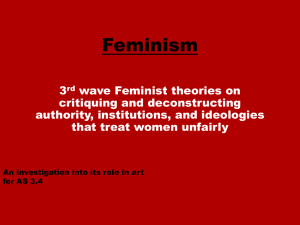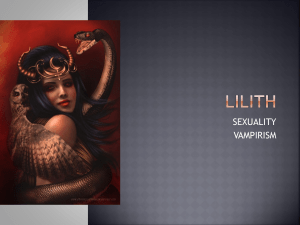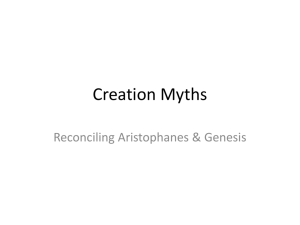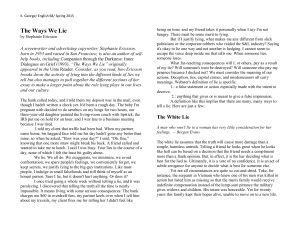book talk paper
advertisement
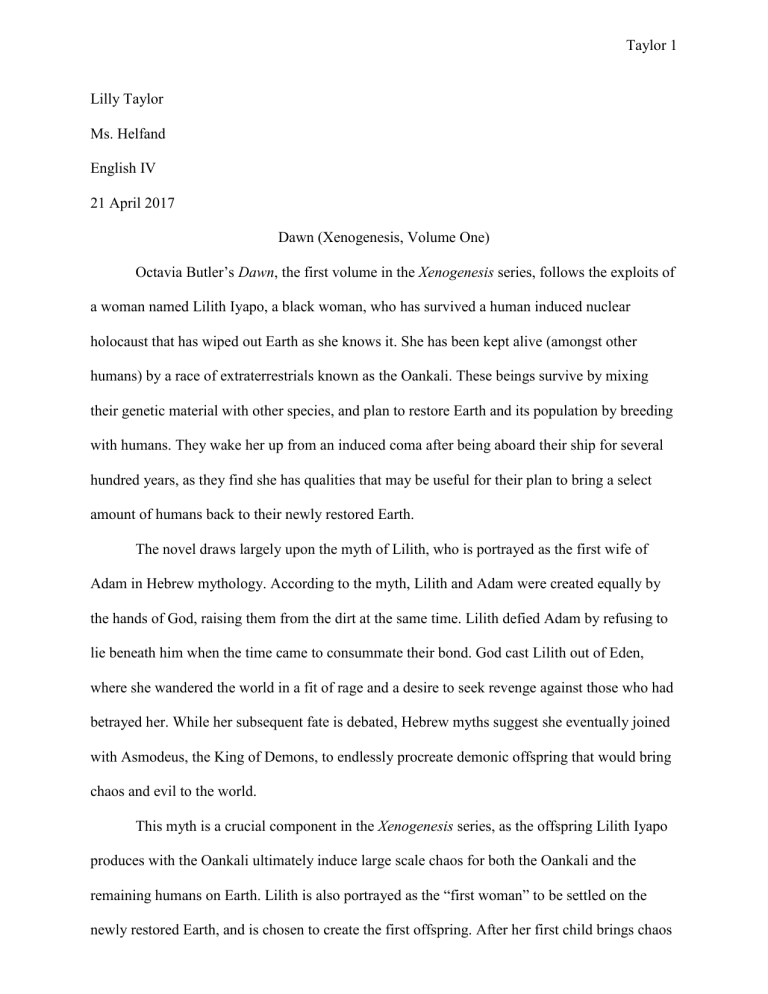
Taylor 1 Lilly Taylor Ms. Helfand English IV 21 April 2017 Dawn (Xenogenesis, Volume One) Octavia Butler’s Dawn, the first volume in the Xenogenesis series, follows the exploits of a woman named Lilith Iyapo, a black woman, who has survived a human induced nuclear holocaust that has wiped out Earth as she knows it. She has been kept alive (amongst other humans) by a race of extraterrestrials known as the Oankali. These beings survive by mixing their genetic material with other species, and plan to restore Earth and its population by breeding with humans. They wake her up from an induced coma after being aboard their ship for several hundred years, as they find she has qualities that may be useful for their plan to bring a select amount of humans back to their newly restored Earth. The novel draws largely upon the myth of Lilith, who is portrayed as the first wife of Adam in Hebrew mythology. According to the myth, Lilith and Adam were created equally by the hands of God, raising them from the dirt at the same time. Lilith defied Adam by refusing to lie beneath him when the time came to consummate their bond. God cast Lilith out of Eden, where she wandered the world in a fit of rage and a desire to seek revenge against those who had betrayed her. While her subsequent fate is debated, Hebrew myths suggest she eventually joined with Asmodeus, the King of Demons, to endlessly procreate demonic offspring that would bring chaos and evil to the world. This myth is a crucial component in the Xenogenesis series, as the offspring Lilith Iyapo produces with the Oankali ultimately induce large scale chaos for both the Oankali and the remaining humans on Earth. Lilith is also portrayed as the “first woman” to be settled on the newly restored Earth, and is chosen to create the first offspring. After her first child brings chaos Taylor 2 to the Oankali community, Lilith and her family are exiled, mirroring the Hebrew Lilith’s exile from Eden. Utilizing this myth, Butler exploits both the two main tropes of female divinity: the female assertive demon, symbol of rebellion against submission to males, and the mother goddess to unfold her narrative. Black authors of science fiction rarely receive recognition, and when the novel was written in 1987, black female authors were unheard of in science fiction. The inclusion of black female protagonists alters the dynamic of typical science fiction novels, as it forces us to analyze how race and gender affects the exploits of the characters. Dawn forces you out of your comfort zone and to imagine the unsettling idea of breeding with an alien race to save your species. The novel is controversial, compelling, and though it offers no resolution, offers the assurance that Lilith is unafraid in her quest for autonomy, and that the possibility of transformation and progress exists for both species.
